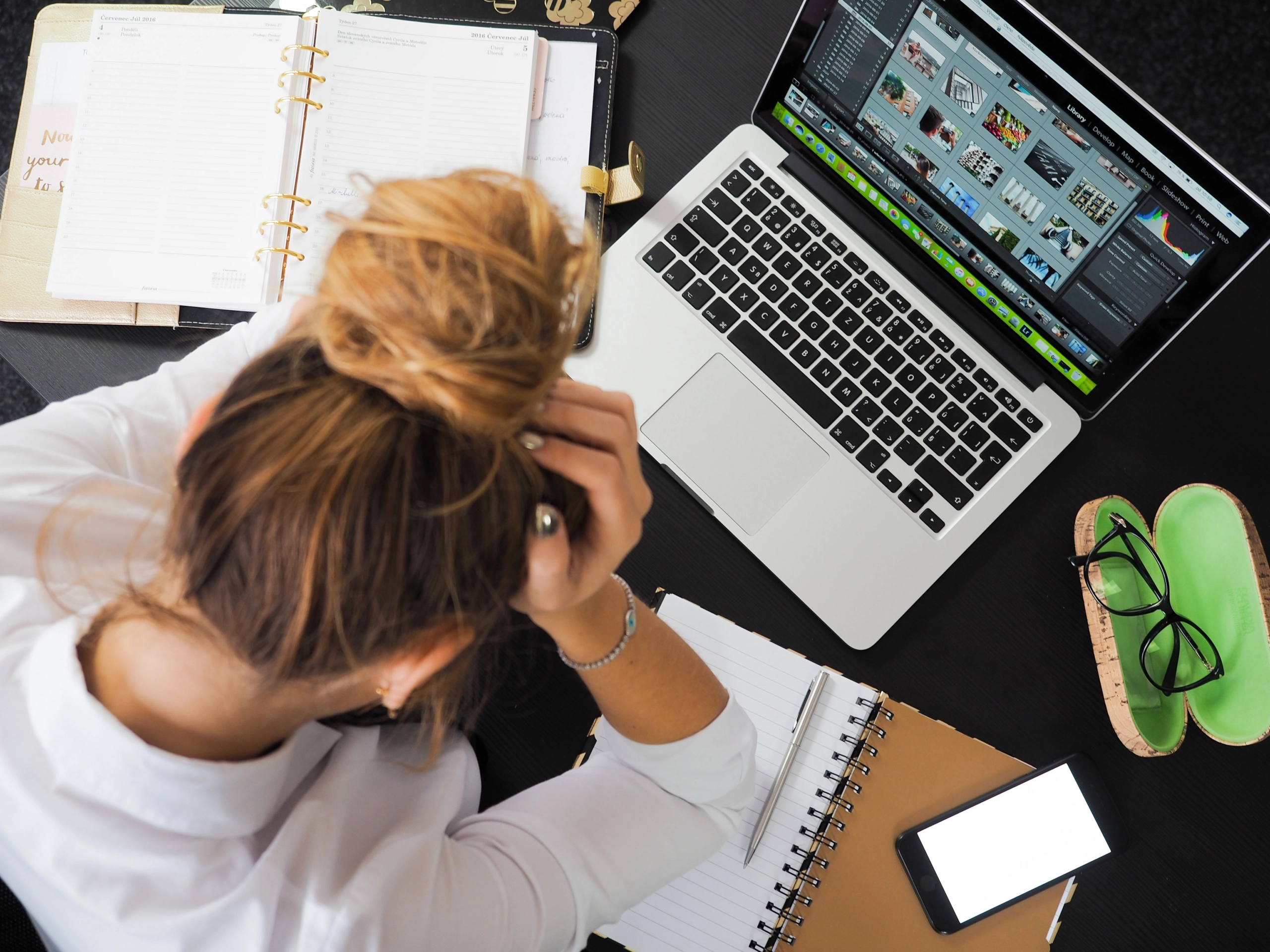Hair Loss in Women—Why does it happen?
Hair loss in women is a common health complaint I see in clinic and understandably can cause sufferers a great deal of stress and worry. The reasons it can happen will depend on current health status and may be obvious, such as following pregnancy, or perhaps need a little investigating work done – is it due to hormonal imbalance, or an underlying thyroid condition that has never been diagnosed? Read on to find out 5 of the most common reasons for hair loss in women.
Post-pill
Hair loss that starts to happen once a woman stops taking the oral contraceptive pill (OCP) can occur due to the change in hormone levels – she is no longer supplying her body with a steady, elevated supply of synthetic hormones that are in the pill such as synthetic oestrogen and progesterone. Whilst on the pill, a woman’s own natural hormone production has been switched off – she isn’t making natural oestrogen or progesterone at all. When she stops taking the pill and the body stops receiving these artificially high levels of synthetic hormone, hair loss can occur due to the drop off. Adding to this scenario is the fact that being on the OCP decreases your levels of B vitamins and zinc – both these nutrients are vital for healthy hair growth and to minimise hair loss.
It can take 2-6 months for the hair loss to begin for some women post-pill, and may be worse for those who don’t get a natural period back once they stop taking the pill, as their natural hormone production may need some assistance to pick back up. The post-pill scenario can look very different woman-to-woman, so I advise seeing a practitioner to assist you with coming off the pill and supporting your body’s hormones and nutrient levels whilst doing so, to make the transition smoother.
Post-pregnancy
Many mums and mums-to-be know about the hair loss that can occur in the months after pregnancy. In fact, a question I regularly get asked in clinic by my pregnancy clients when they get closer to due date is “How can I prevent the hair loss that happens after I have bub?!” The reason new mothers shed quite a lot of hair in the months following their baby’s birth is due to normal hormonal changes—higher levels of hormones including oestrogen during pregnancy means that your hair grows more and you shed less of it each day. We all lose a little hair every day, however during pregnancy women shed very little, if any, on a daily basis. So once pregnancy is over, your hormone levels such as oestrogen drop, and so does your hair. It is completely normal and can last a few weeks, months or for some up to one year.
There are things you can do however to help ensure your hair loss post-partum isn’t extreme – low levels of iron will often exacerbate hair loss, as can low B vitamins and poor zinc levels. After pregnancy these nutritional deficiencies are quite common among women if they haven’t been monitoring and supplementing throughout pregnancy and during breast feeding, so check in with your healthcare provider to check these nutrient levels and supplement under the guidance of a practitioner only.
Thyroid conditions
Hair loss (scalp, eyebrow hair and even eyelashes) is a common symptom associated with thyroid conditions, including states of both overactive (hyperthyroidism) and underactive thyroid function (hypothyroidism). This type of hair loss doesn’t occur in patches on the scalp but will be a uniform thinning of the hair and can happen quite gradually over time. Identifying an underlying thyroid condition (if you have signs and symptoms of thyroid dysfunction) needs to be done via thorough testing, so check in with your health care provider to investigate. The good news is that correcting thyroid hormone levels and supporting healthy thyroid function will stop hair loss, and your hair will grow back over time. It is vital that thyroid antibodies are tested as well as TSH, T3 and T4 as autoimmune thyroid disease is becoming increasingly common, and without addressing the immune factor you won’t improve thyroid health (and hair loss).
Nutrient deficiencies
As mentioned above, deficiencies in B vitamins and zinc (common when taking the OCP) can contribute to hair loss, as can low iron. Low iron is a common scenario for women of reproductive age due to the loss of blood each month at menstruation and often a low dietary intake. Women aged 15 years and over need to be getting 15-18 mg of iron per day, which is harder to get from your daily diet than you may think (100 grams of beef mince contains only around 2.7 mg of iron!) If your iron stores (ferritin levels) start to run low, only consuming the recommended daily amount is not going to top up your stores, so you will be forever running at a deficit.
Zinc is necessary for hair growth and to prevent hair shedding and again it is common for women to be getting less zinc from their diet than they need. Australian soil is low in zinc and therefore the plant foods that should be rich sources of dietary zinc are not, meaning we often cannot rely on diet alone to get adequate intake.
B vitamins, especially biotin, are essential for healthy hair, skin and nails as well as a healthy nervous system. The body requires higher levels of B vitamins when under stress, to keep the nervous system supported, so we commonly see low B vitamin status in those who experience stress, especially chronic stress and depletion (see paragraph below).
I recommend working with a practitioner to investigate what your iron, zinc and B vitamin levels look like, and supplementing with the correct dose AND form of these nutrients. Self- prescribing is not recommended so please get in touch.
Stress
Elevated stress levels can contribute to increased hair loss, with studies linking high levels of the stress hormone cortisol with increased hair loss. There appears to be a 3month delay however; you may go through a period of intense stress, but your hair starts falling out almost exactly 3 months later. This is because of the life cycle of human hair, with a delay occurring when the hair stops growing, and then falls out (3 months). It rings so true that many dermatologists’ first questions to their hair loss patients will be “What happened 3 months ago?”.
Having strategies in place to cope with and manage stress will help to avoid hair loss occurring due to this reason – self-care, prioritising sleep and relaxation and using herbs and supportive nutrients (zinc, magnesium, B vitamins) can also be beneficial. Often one of the most effective ways to reduce ongoing stress is to ask yourself – “Is there one thing I take off my plate so that I can free up some time/energy to look after myself?”
If you are experiencing hair loss and would like some support in finding out why, and addressing the cause, send me a message as I’d love to support and guide you.
Image Credit — Photo 1 by Tim Mossholder
Image Credit — Photo 2 by energepic.com




